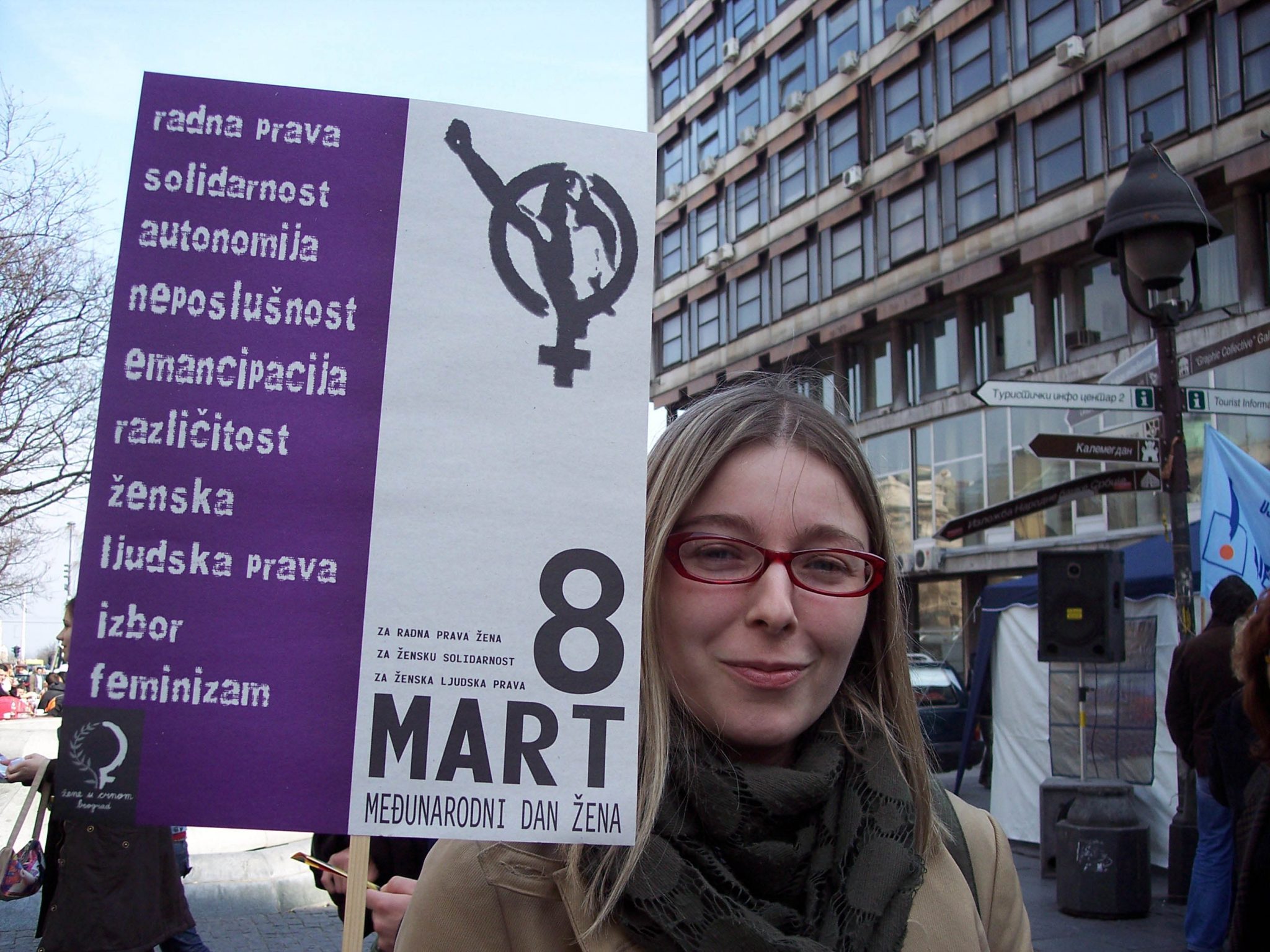”Dance to the tune of the regime – or don’t dance at all”
Mirjana Mirosavljevic Bobic, who runs a Serbian organisation that supports women’s organisations, does not have to think long to come up with examples of how women’s rights activists’ space to act is shrinking. “By being highly visible, we dismantle traditional gender roles. That drives conservatives and fascists crazy,” she says.

Serbia is an official EU candidate country. But the political parties in power today have close ties to Slobodan Milosevic’s regime of the nineties and balance between the European Union and Russia. The Serbian Orthodox church has considerable influence over the political agenda. While women’s rights organisations oppose nationalist and traditional values in society, there is not a lot of space for feminist activism.
“Sure, there might be space for organisations created by political parties, or for those who receive public funding to advance the government’s agenda – that is: slick, pro-government PR machines – but their space isn’t unlimited either. No one is independent as long as they need to dance to the tune of the regime,” says Mirjana Mirosavljevic Bobic, head of the Reconstruction Women’s Fund, a Serbian organisation that supports women’s organisations across the country.
Interior ministry bans demonstration on 8 March
She does not have to think long to come up with examples of how there is anything but free space for those whose values go against what the conservative regime stands for. Recently, the interior ministry banned a demonstration on 8 March (International Women’s Day) with the explanation that it would disturb public transport. The country also has a long history of repressing LGBTQI activism, including Pride parades. The police often allows fascist groups to hold counterdemonstrations at the same time and in the same place as human rights groups’ demonstrations. Another example of activists’ shrinking space is the way many more police officers than necessary tend to be present at human rights groups’ events.
“They make it look like we are dangerous and the public needs protection from us,” says Mirjana Mirosavljevic Bobic.
“They call us whores, bitches, dirty dykes, …”
She explains that the reason why women’s rights activists are attacked in Serbia is not just because they are women, but also because they are some of the most persistent critics of the regime.
“By being highly visible, we dismantle traditional gender roles. That drives conservatives and fascists crazy. And then the attacks start. The most common ones have a sexual undertone: women activists are called whores, bitches, dirty dykes, unfuckable. I know, it’s contradictory. Then there are attacks about our looks: that we are fat, ugly, have greasy hair, etc. And let’s not forget how they call us traitors – they want women to safeguard the future of the nation by being breeding machines,” says Mirjana Mirosavljevic Bobic.
The Reconstruction Women’s Fund has been part of several published “blacklists” of organisations that “do not respect Serbia’s constitution.” Its website has been hacked several times and a newspaper article accused the organisation of having been “bribed with dollars.”
“The constant pressure and attacks drain our energy and strength”
Smaller grassroots organisations across the country also feel their space shrinking. There have been a number of attacks on women’s rights activists – either physical attacks against individuals, or attacks against their homes and office spaces. Activists also face threats and blackmailing by local authorities and politicians: “You get a share of the budget if you behave.” Some have been evicted from their offices for criticising local authorities. The constant pressure and attacks drain activists’ energy and strength. And they lead to high levels of self-censure, says Mirjana Mirosavljevic Bobic.